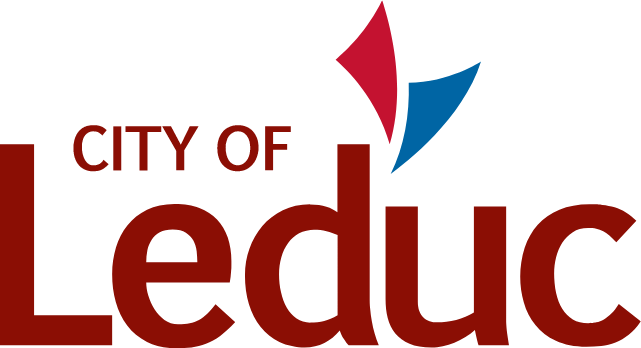The City of Leduc oversees land acquisition processes to secure property for municipal infrastructure, public amenities, and community development. These efforts support long-term planning and ensure Leduc can meet its growth and service goals.
Purpose of Land Acquisition
The land acquisition program is designed to:
- Support infrastructure projects, such as roads, water systems, and public facilities
- Facilitate community development initiatives, including parks and recreational spaces
- Ensure land is available for current and future municipal needs
Acquisition Process
The City of Leduc follows a structured process for acquiring land:
- Identification of Need: The City identifies properties required to support specific projects or services
- Consultation and Negotiation: Landowners are engaged in discussions to reach mutually agreeable terms for acquisition
- Compensation: The City ensures fair compensation is provided based on market value assessments and other considerations
Collaboration with Landowners
Leduc prioritizes transparency and collaboration during the acquisition process. Landowners are kept informed and involved at every stage to ensure the process is respectful and equitable. The City works to minimize disruption to residents and businesses impacted by land acquisitions.
Benefits of Land Acquisition
- Efficient Infrastructure Development: Ensures that essential projects can proceed without delays
- Enhanced Community Services: Facilitates the development of parks, public facilities, and other amenities
- Sustainable Growth: Aligns with Leduc’s vision for planned and sustainable urban development
Expropriation Process
Expropriation is a legal process where the City can take privately owned property without the consent of the owner for a public benefit or purpose. The process is viewed as a last resort if the owner is unwilling to voluntarily sell their land or if negotiations fail.
Expropriation is regulated by the Municipal Government Act under the Expropriation Act. The Expropriation Act requires all municipalities to comply with specific regulations and gives all private landowners the same rights and entitlements when their land is being expropriated.
The municipality pays all reasonable legal, appraisal and other costs incurred by the property owner under the Expropriation Act.
Expropriation FAQs
Often a last resort, expropriation is the legal process by which a municipality may acquire private land for a public benefit or purpose if the property owner is unwilling to voluntarily sell the land, or if purchase negotiations fail. A municipality can take a portion of the land or the entire parcel, depending on the circumstances.
The expropriation of privately owned land is regulated by the Municipal Government Act under the Expropriation Act. The Expropriation Act sets requirements for municipalities and gives all private landowners the same rights and same entitlements to compensation.
Sometimes the City needs privately owned land to build or make necessary changes to infrastructure such as roads, utilities, parks, or buildings to accommodate for the growing city needs. Land acquired by expropriation is for a public benefit or purpose.
The City strives to minimize the impact on property owners and will always attempt to acquire land voluntarily and by negotiation with the property owner. Expropriation is always a last resort.
Depending on the City’s growing needs, the land can be used for a range of infrastructure needs, including roads, utilities, parks, or buildings.
- City Council must pass a Notice of Intention to Expropriate.
- Notice of Intention to Expropriate is served to the property owner(s) of the impacted land, and notices are placed in accordance with the Expropriation Act.
- The property owner(s) may file a Notice of Objection questioning whether taking of the land is fair, sound or reasonably necessary
- If a Notice of Objection is filed, an inquiry officer is appointed to determine whether the taking is fair, sound, and reasonably necessary.
- Once the inquiry officer’s report is received, City Council must decide whether to proceed with, abandon or modify the proposed expropriation.
- The City files a Certificate of Approval in the Land Titles Office to transfer the property title (but no possession) to the City.
- A Notice of Expropriation is served to the property owner(s) when the Certificate of Approval is filed. The notice sets out the rights and entitlements provided to the property owner(s) pursuant to the Act.
- A Notice of Proposed Payment served to the property owner(s) outlines what the city believes to be fair and complete compensation. The Notice of Proposed Payment must include a written appraisal as evidence of fair market value.
- A Notice of Possession served on the property owner(s) provides advanced notice of when the City intends to take possession.
- Should the owner(s) be dissatisfied with the proposed payment, the owner(s) can apply to the Land and Property Rights Tribunal to determine compensation, regardless of whether the proposed payment was accepted or not.
In accordance with the Expropriation Act, the municipality pays all reasonable legal, appraisal and other costs incurred by the property owner. The City prefers to work together with the property owner to come to an agreement for a voluntary acquisition of the property with respect to a fair market value. This is always the preferred route over the expropriation process.
Property owners’ rights are protected through policies and procedures under the Expropriation Act and the Land Agent Licensing Act. If an agreement on fair compensation is not reached between the parties, the landowner can proceed to the Land and Property Rights Tribunal to determine compensation.
Land value is determined through analysis of independent, qualified market appraisals procured by the City and the owner.
Contact
For more details or assistance with land acquisition in Leduc, reach out to the City of Leduc’s Engineering Department:
- Phone: (780)-980-7177
- Email: [email protected]

